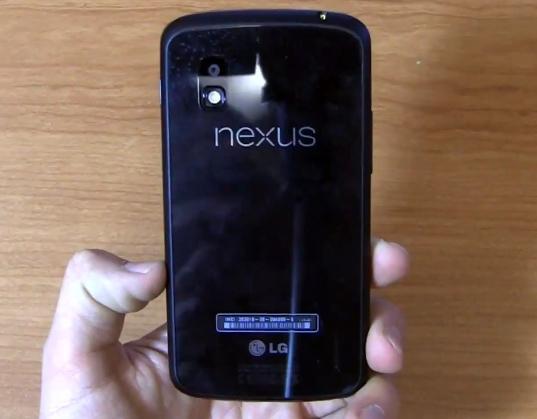
When a new phone is announced, there’s a short time where it’s all about the specifications. Even if we’re wondering in the back of our head, “How much is this going to cost?” there’s at least a teeny tiny moment in time where we’re just taking in all the hardware and software. Personally, the technology is certainly one reason why I’m in love with this industry so much. It’s crazy the things we can shove into a small frame, especially when they keep getting thinner. But, then, we hear a price, a release date and carrier options and then we have to wonder if we can even get the phone we’ve been salivating over.
I can’t help, even today, months after the initial announcement of LG’s Nexus 4, but wonder if this particular handset is such a success based on its technical specifications, or if it has more to do with the cheap price tag. Yes, I know that some people would probably chalk it up to an easy, “It’s both!” but I want to look a bit deeper at it.
First, let’s start the same way that the announcements generally do: The specs. The Nexus 4 from LG is the newest Nexus-branded device from Google, meaning it’s a true-blue “vanilla” Android handset. No proprietary skin, like Samsung’s TouchWiz UI or HTC’s Sense UI. It’s an unadulterated version of Android 4.2 Jelly Bean. On the hardware front, we’re looking at a 4.7-inch True HD IPS touchscreen display. There’s an 8MP camera on the back, and on the front you’ll find a 1.3MP front-facing shooter. Inside the device, there’s a 1.5GHz quad-core chipset, along with 2GB of RAM. It comes in two version: An 8GB model, and a 16GB version of built-in storage. The battery is measured at 2,100mAh.
It also comes packed with other features, including wireless charging, NFC support, Bluetooth, Wi-Fi, GPS, a barometer, plus plenty more. There should be no doubt in anyone’s mind that the Nexus 4 is a device meant to play against the main competition, including Apple, but especially Samsung. This is the device that, when compared to the Galaxy S-branded series from Samsung, could pull some attention back to stock Android, and towards LG.
The Nexus 4 is still sold out, so it must be working. At least a little bit.
The other side of the story is the price tag. In fact, it’s just as important as the hardware. The reason we’re having this discussion right now is because I think some people might say it’s even more important. And that’s what I want to find out through you, Dear Reader.
The 8GB model of the Nexus 4 costs only $299.99. If you wanted to upgrade to the 16GB model, though, you’d have to ante up only an additional fifty bucks, taking your total to $349.99. And this is without a contract. I asked you yesterday if you were planning on picking up a Nexus 4 through a T-Mobile store, because some T-Mobile retail locations are getting small shipments of the device this month. And after having a few conversations yesterday, the consensus seems to be that paying $200 more than what you could pay through the Google Play store isn’t worth it just to have the phone.
But $549.99 is the same price as a Galaxy S III off-contract. The same for an HTC One X+. (Both devices through AT&T.) It would seem the only difference is that people looking at the Nexus 4 know that Google is selling it for $200 less than what T-Mobile is offering it for off contract.
And that’s why I’m wondering if the price is the reason why the Nexus 4 is doing so well. If it were being released as any other phone, with a contract and priced between $49.99 and $299.99 (just to cover our bases), with its specifications, would it be such a hard commodity to come by? Sure, the Nexus 4 has great specifications, but does it really stand out on its own merits, on its own specs, when compared to the competition? It’s a great phone, yes. No doubt about it. But I think the price is the motivation for sell-outs.
But here’s the rub: That isn’t a bad thing. In fact, it’s great that the Nexus 4 is doing so well because of the price. It’s a competitive phone. Google is selling it for $200 less than comparable devices, without any connection to a US-bound carrier (or otherwise). That’s a bold move, and it’s working for Google. So, hopefully we see another situation like that in 2013. Though, let’s hope they can keep selling it this time around.
But, tell me, Dear Reader, if you purchased a Nexus 4, did you do so because of the specifications? Or was the price tag just too good to pass up? I’m sure that you could say it was for both, but would you have bought the Nexus 4, off-contract and with its specifications, if it cost $549.99 from Google? Let me know!